#empress maria theresa
Text
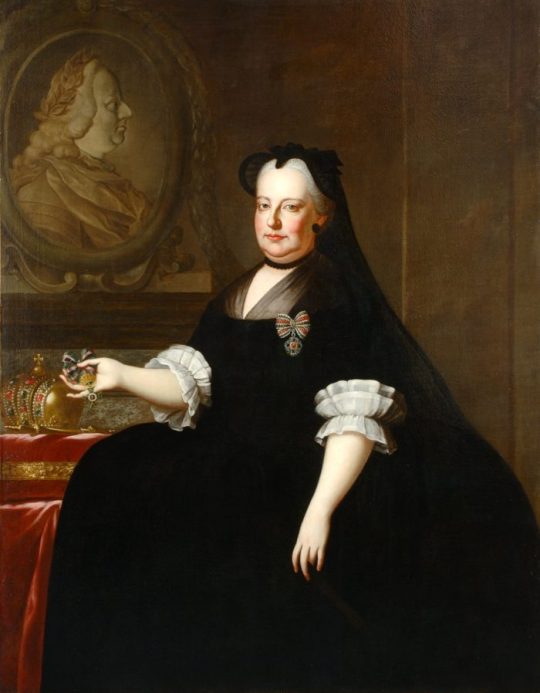
Portrait of Maria Theresa of Austria. By Johann Michael Millitz.
#johann michael millitz#erzherzogtum österreich#haus habsburg#house of habsburg#empress maria theresa
5 notes
·
View notes
Text

She's everything. He's just Ken.
#Maria theresa#Francis I#Empress maria theresa#18th century#barbie movie#Barbie meme#house of habsburg#austrian history#history shitposting#Ive finally done it suzanne if finally done it
18 notes
·
View notes
Text
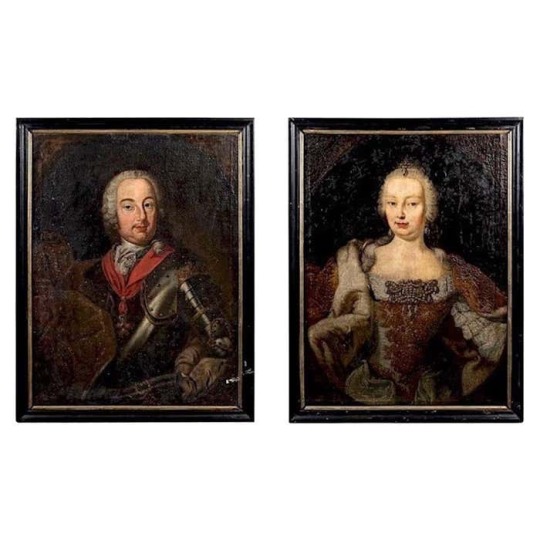
Pair of 18th Century Portraits of Emperor Francis I and Empress Maria Theresa
1 note
·
View note
Text

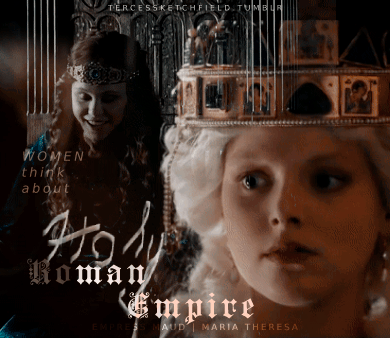
MEN THINK ABOUT ROMAN EMPIRE. WOMEN THINK ABOUT HOLY ROMAN EMPIRE
JUDITH OF BAVARIA (797-843) — Daughter of Count Welf I of Bavaria, Judith was a Carolingian Empress as the second wife of Louis I the Pious. Mother of Gisela and Charles the Bald, she foght for both her own influence at court and for the succession of her son over the claims of his elder half-brothers, the sons of Louis I from his first marriage. Charles became the Emperor in 875, after the death of Louis II, his nephew and a son of his half-brother Lothair / fancast: Annabel Scholey
MARIA OF AUSTRIA (1528-1603) — Daughter of Charles V, Holy Roman Emperor, and Isabella of Portugal. She served as Regent of Spain both jointly with her husband, Maximilian (before their accession to the imperial throne), and in person, for her father, and brother, Philip II. Her children include two Holy Roman Emperors, Rudolf II and Matthias, over whom she held great influence, and queens consorts of Spain, and France / fancast: Olivia Cooke
EMPRESS MAUD (1102-1167) — Daughter of Henry I of England and Matilda of Scotland. Her first marriage to the Holy Roman Emperor, Henry V, gave her the title under which she came down into history, and was a source of great pride to Maud. Rightful heiress of Henry I, she confronted her cousin, King Stephen, in the civil war, known as the Anarchy, fighting ferociously for her rights. She failed in this for herself but won for her son Henry, who became king and established the Plantagenet dynasty in England / cast: Alison Pill in The Pillars of the Earth (2010)
MARIA THERESA (1717-1780) — She succeded her father Charles VI as the ruler of Habsburg monarchy in 1740, and devoutedly defended it against its enemies in the War of Austrian Succession and the Seven Year's War. Wife of the Holy Roman Emperor, Francis I, she was a forceful personality and a competent ruler herself, reigning first in her own right, and later, jointly with her son Empreror Joseph II. Her children include two Holy Romam Emperors (Joseph II and Leopold II), queens consorts of Naples ans Sicily, and France / cast: Marie-Luise Stockinger in Maria Theresia (2017)
#historyedit#judith of bavaria#maria of austria#empress maud#empress matilda#maria theresa#maria theresia#perioddramaedit#history#women in history#perioddramasource#onlyperioddramas#tusereliza#userbennet#usermina#weloveperioddrama#cortegiania#perioddramagif#gifshistorical#my edit#*i have literally zero idea what is this lmao* but i really like it idk
115 notes
·
View notes
Text
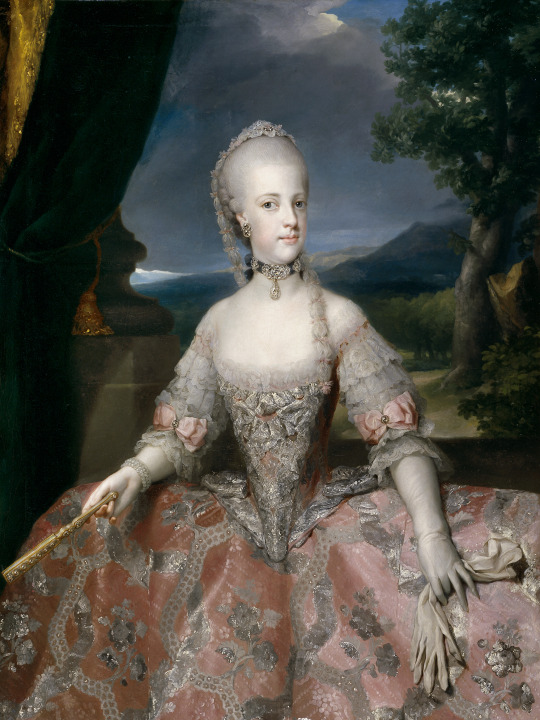
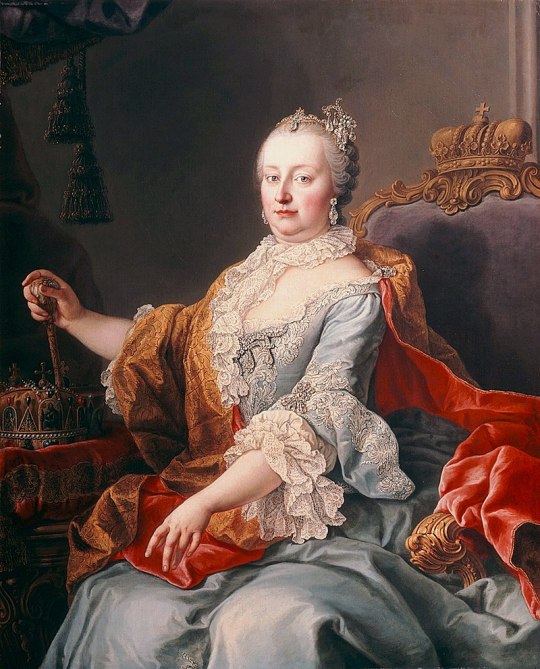
Once she [Maria Carolina] had subdued her husband and massively improved her own standing by producing a son, she had Ferdinand dismiss the old minister, against Charles III’s opposition, and replace him as state secretary with the former Sicilian emissary in Vienna. And in 1778 she began regularly attending meetings of the State Council as the heir’s mother, just as Kaunitz had initially advised her to do. In short, she showed herself to be a true daughter to her mother: not just externally but above all temperamentally. Sanguine, spirited, intelligent, and accommodating, yet also strong-willed and confrontational when necessary, she proved a masterful manipulator of her husband—albeit for her own ends, not those of her mother. She had always successfully resisted having a lady-in-waiting sent from Vienna to spy on her, and she was similarly adept at evading supervision by the imperial emissary, Wilczek. She was too much like her mother to tolerate being used as her instrument.
Maria Theresa could not begrudge her daughter her respect. In 1772 she reported to Marquise d’Herzelles: “The Queen is conducting herself very well … and I am assured that the king has already mended his boorish and filthy ways.” “I love this daughter very much, and she deserves it too,” she wrote to Countess Enzenberg, meaning: in contrast to Amalia in Parma and Antonia in Versailles. She subsequently held up Carolina to the other children as a paragon of candor and obedience, and even King Ferdinand, about whose character defects she was under no illusions, eventually rose in her estimation to become (temporarily) her second-favorite son-in-law, gendre bien aimé. She expressed herself more frankly to Maria Christina, who in 1775 was to travel to Naples to ascertain that all was in order: “You know how dear your sister is to me; justice compels me to say that she is, after you, the one who has shown me the most true inclination, asked for my advice, and heeded it too. But young and spirited as she is, partnered with so heated and ill-mannered a husband, surrounded by all possible ills, what hope can there be for her? It is a miracle that things are still running as they are, and,” she added in canny self-awareness, “more harm than good is to be expected from advice offered from abroad.”
Even Carolina had not always been open and trusting with her, she complained. That she was not quite so satisfied with her independent and strong-willed daughter in Naples as she claimed is also confirmed by Leopold, who in 1778 noted in his diary that the empress hardly bothered any more with “Neapolitan affairs as she is somewhat irritated with the queen, who does not appreciate others mixing in her business.” Toward the end of her life, pity for Carolina regained the upper hand: “The poor Queen deserves … sympathy,” she wrote in April 1780.
Stollberg-Rilinger, Barbara (2020). Maria Theresa: The Habsburg Empress in her Time (translation by Robert Savage)
#finally getting to answer my asks and i had to consult the maria theresia bible for one of them#queen maria carolina of naples#empress maria theresia#historian: barbara stollberg-rilinger#maria theresa: the habsburg empress in her time#historicwomendaily#house of habsburg
63 notes
·
View notes
Text
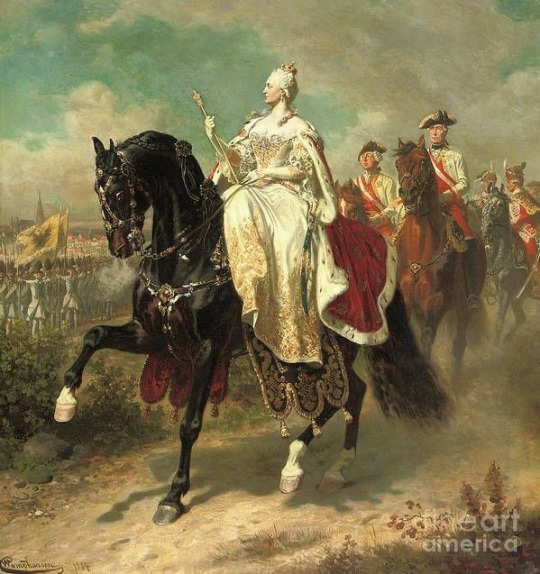
A painting depicting Maria Theresia, Holy Roman Empress, inspecting Austrian troops.
#holy roman empress#holy Roman Empire#18th century#18th century Austria#Maria Theresia#Maria Theresa#House of Habsburg#Habsburg#Habsburg Dynasty#art
71 notes
·
View notes
Text
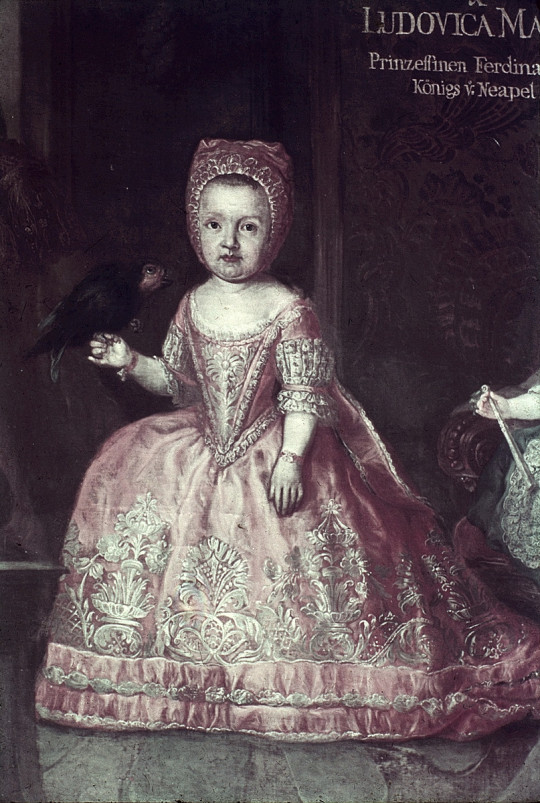
Detail of a portrait of a young Maria Theresa of Naples and Sicily, future Holy Roman Empress and first Empress of Austria.
#maria theresa of naples and sicily#18th century#18th century art#house of bourbon two sicilies#holy roman empress#empress of austria#long live the queue
13 notes
·
View notes
Text
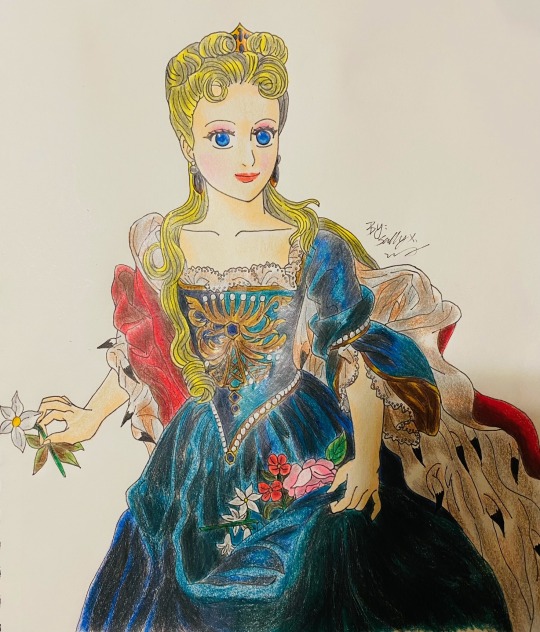
I finally get to draw a younger version of Maria Theresa in my style(original painting by Andreas Moller)!! BTW I got motivated to draw this after seeing Riyoko Ikeda's version of her.
#art#drawing#maria theresa#austria#royalty#empress#history#redraw#portrait#holy roman empire#18thcentury#artist on tumblr
50 notes
·
View notes
Text
@peoplcshope said: ❝ I know that you can kill. Now show me that you can obey. ❞ (for Maria)
SENTENCE STARTERS | ELDER SCROLLS ONLINE ( DARK BROTHERHOOD )

"...Were I a less mildly-tempered Heroic Spirit, Master, speaking so demandingly would not earn you any favors." Even she, as composed as she was, didn't find the young man's demeanor at all endearing. So brazenly demanding she follow his orders, especially so young as he was... Well, a more prideful Servant likely would've been far less agreeable.
"Though I am your Servant, my existence is an ephemeral one regardless of how I follow your orders. Do keep in mind that it is not I who needs your help, but you who needs mine, in this situation, and let that inform your behavior from now on."
#peoplcshope#holy roman empress || maria theresa#and then trunks got scolded by his new mother - I mean servant#ganbatte future boy
2 notes
·
View notes
Photo
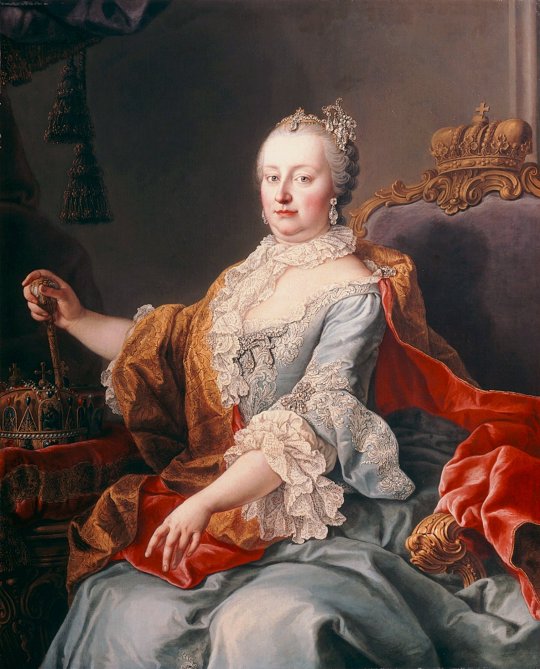
A person from history 🎩
Maria Theresa of Austria (1717-1780) who passed away 242 years ago today.
One of the most powerful monarchs of the 18th century in Europe, Empress Maria Theresa was the only woman to rule the Holy Roman Empire. María Theresa succeeded the throne in 1740, after the death of her weak father, Emperor Charles IV. She almost immediately found herself at war with Frederick II of Prussia, her great rival. Prussia invaded the Silesian territories with the excuse that Maria Theresa could not become sovereign because she was a woman. Although she lost those territories, Maria Teresa was able to keep her crown. Maria Teresa reigned for 40 years. Although she nominally had to share her crown with her husband Francis I, in reality she was the sole true ruler of her empire, which she strengthened politically, economically, and militarily. María Theresa was also a participant in the first global conflict in history: The Seven Years War. Her court full of artists, scientists and philosophers was one of the great examples of the so-called enlightened absolutism.
Un personaje histórico🎩
María Teresa de Austria (1717-1780) que falleció hoy hace 242 años.
Una de las monarcas mas poderosas del siglo XVIII en Europa, la emperatriz María Teresa fue la única mujer que gobernó el Sacro Imperio Romano Germánico. María Teresa adquirió el trono en 1740, tras la muerte de su débil padre, el emperador Carlos IV. Casi inmediatamente tuvo que enfrentarse en guerra con Federico II de Prusia, su gran rival. Prusia invadió los territorios de Silesia con la excusa de que María Teresa no podía convertirse en soberana por ser mujer. Aunque perdió los territorios, María Teresa pudo mantener su corona. María Teresa reinó por 40 años. Aunque nominalmente tuvo que compartir la corona con su esposo Francisco I, en realidad fue la única verdadera gobernante de su imperio, el cual fortaleció política, económica y militarmente. María Teresa también fue participe participe del primer conflicto global de la historia: La Guerra de los siete años. Su corte repleta de artistas, científicos y filósofos fue uno de los grandes ejemplos del llamado despotismo ilustrado.
#history#european history#austria#holy roman empire#holy roman emperor#empress#maria theresa of austria#marie antoinette#today in history
4 notes
·
View notes
Text
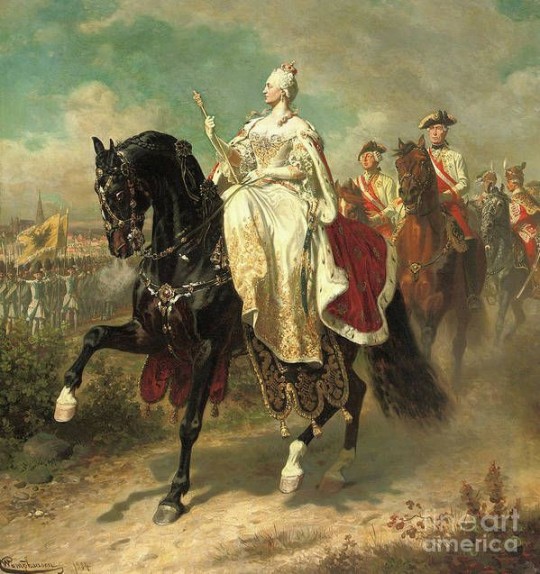
Empress Maria Theresa of Austria
4 notes
·
View notes
Link
Chapters: 1/1
Fandom: Der Rosenkavalier | The Knight of the Rose - Strauss/von Hoffmannsthal/von Kessler, Opera
Rating: Mature
Warnings: No Archive Warnings Apply
Relationships: Octavian Rofrano/Maria Theresa von Werdenberg
Characters: Maria Theresa von Werdenberg | Marie Therese von Werdenberg, Octavian Rofrano
Series: Part 1 of Princess Rezi
Summary:
Princess Rezi (Marschallin) goes to the country to rest after the end of her affair with Octavian before returning to the Empress’ Court for the season.
0 notes
Text
story idea: In 1767, the Habsburg empress Maria Theresa issued a sweeping new census of the Hungarian peasantry in an attempt to establish this new “centralized authority” that’s all the rage. you are the hapless bureaucrat who has just unknowingly knocked on the door of Dracula’s castle and asked politely for his tax returns.
156 notes
·
View notes
Text
prologue.
the reluctant empress.
(19th Century Imperial Austria AU)
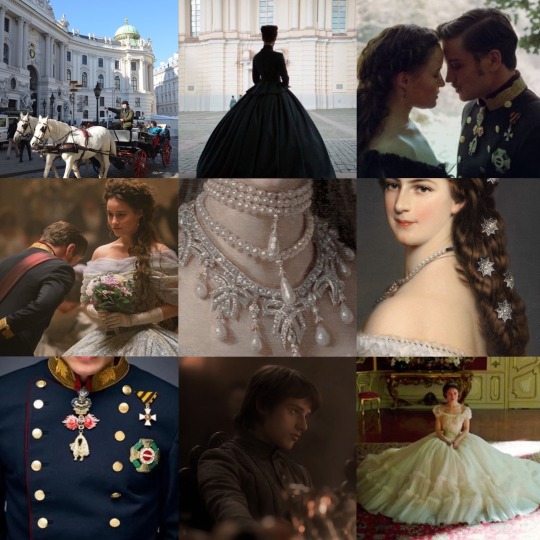
series masterlist
chapter 1 (soon)
jacaerys (jace) velaryon x female!original character
original work: house of the dragon
rating: rated g (will become pg 18+ in later chapters)
summary: this is a dangerous game we play. as rhaenyra sits on the iron throne and the crown lands on her head, she ensures nothing will risk her reign, and that her son, with all his promise, follows after her. and nothing will stop her.
genres: historical, romance, intrigue, smut (to follow)
word count: 1.0k words

Compromise. That was the word Rhaenyra had heard over and over again, uttered until it became repetitive and meant so much until it was empty.
Never had there been an Empress in her own name since Maria Theresa in the Imperial house, and many of her descendants made sure a woman like her could not rise up again whether by inheritance or coup d’etat.
When King Jaehaerys died unexpectedly in the dawning days of 1852, her father Archduke Viserys befell the throne and crown on his head. Long widowed and mourning the loss of his wife and her mother Aemma, Viserys was a peaceful, kind man, gullible and easily influenced, who suffered bouts of melancholy and locked himself away in his room for days and weeks.
After a series of uprisings from the Vale and failed conquests of Dorne, Rhaenyra managed to convince her somewhat feeble-minded and defeated father to abdicate and hand the throne to her, a princess at age of twenty, fresh from having given birth to her third son Joffrey with spouse Laenor Velaryon, who had taken court with her at Dragonstone, at their ancestral home.
Ever since Jacaerys sat on his grandsire’s lap, chestnut orbs full of wonder and curls forming on his head, as Viserys told him that seat would be his one day - it would be her greatest ambition to succeed him on that throne and pave the way for an even greater reign to come in form of her son.
Since the hatchling sat on her son’s chest and crawled over his wooden crib, Jacaerys was meant for greatness and she knew. He, who picked up reading and writing sooner than any babe, who was crawling already when most did not coordinate their spindly limbs together. Whose eyes read voraciously as he was pressed to her breast or a wet nurse’s. ‘Alysanne reborn’ they would call him sometimes - it’s as if she had swallowed texts and candles while she carried him in her womb.
As the scintillating diadem landed on her head full of silver hair up, Rhaenyra was a step closer to making her dream come true. Sapphires emblazoned on her collar, she honoured her mother Aemma wherever she went, avenging all misdeeds done against her, so that she may have the final laugh after all.
Seeing her father all hesitant, appeasing and letting himself be led on by ill meaning snakes who only wished to take advantage of him for their own personal gains had taught her that compromise can only go so far before it eats you up alive. And she won’t let that happen to her. Or to her son.
…
This is the best I can do. Or at least that’s what Alicent’s father told her when he was able to secure a match for her, a second son’s daughter, to a sickly, old Lord Targaryen who was a distant cousin to the conqueror himself. Not as wealthy or influential as the main branch of the family who sat on the throne, but this is the most she can dream for when most lords turned their heads at the sight of her and her brothers.
The old lord, as wealthy as he was, had no great lands but a humble castle in the middle of nowhere in the Crownlands. Loyal and content he was to his family, he had no drive or ambition of his own, after fighting the same war that had gotten Prince Aemon struck with an arrow, returning with maladies that only added to his already delicate health.
Left with two daughters and a granddaughter from the eldest who was now also left a widow, Alicent felt she had no escape, a hole dug so deep there’s no other way but down.
Meek, obedient, people pleasing and content, Helaena was born first, so quiet and unmoving they were afraid she was stillborn and lifeless, answering the prayers of long assumed infertility her husband had assumed from his failure to sire children from his two previous wives. Plump and round faced, her silver hair was nearly pale and had the blue eyes of her father.
Religion was an escape, a soothing balm to her wounds and sensitive nature, to Helaena as it was for her mother. Although Valyrian and raised in Targaryen customs, she was never found without a copy of the seven by her desk, a beloved edition passed down from her maternal grandmother. She married the Lord Celtigar’s second son, a handsome, dashing, brave, rather foolish young man who perished squashing the wars of rebellion in the Vale, never meeting his shy, reclusive daughter Jaehaera.
The second, youngest daughter Y/N - where do we even start? Auburn hair like her mother’s, with dark purple eyes common in the Freehold, was anything like her beloved sister. As close they were, they were opposites in every way. Whereas Helaena was hesitant and shy, Y/N was an accomplished equestrian, loved to hunt and explore the streets of the common folk as her father did in his childhood. Born kicking and screaming, she was nearly double the size of her elder, loud cries so piercing it could be heard throughout the keep.
Her cousins the Lord of Oldtown were aghast to see how her youngest daughter turned out, not made in the image of the Mother, but too Targaryen for their taste’s, yet they could not fully turn away their own kin.
Yet for all her feracious character and restless spirit, Alicent knew from her early age that there was an unsettling beauty to her daughter that she could not fully comprehend. It only seemed to haunt her as her youngest grew, learned to climb and walk and run.
A woman’s household, her father mockingly told Alicent, and although she at first felt humiliated and in despair at her hopelessness, a sense of hope sprouted in her. Draped in obsidian mourning clothes, clinging to the last good lace in her treasury, she receives a letter from her once childhood friend whom she had served as lady in waiting to in her youth, Queen Rhaenyra Targaryen.
The Queen has invited the Lady Alicent to join her royal court alongside her two daughters, especially as she was considering one who may be the future wife of her son and heir Jacaerys, Prince of Dragonstone. This was Alicent’s ticket to salvation and financial freedom that would save her ailing family from despair - making Helaena a future Queen and her blood on the throne.
…
#hotd fanfic#hotd x reader#house of the dragon#house of the dragon fanfic#house of the dragon imagines#house of the dragon scenarios#house of the dragon x reader#jacaerys velaryon x reader#jace velaryon#jace velaryon x reader#hotd imagine#hotd au#hotd smut#jacaerys x y/n#jacaerys x oc#jacaerys x reader#hotd jacaerys#original work#writing
239 notes
·
View notes
Text

Maria Theresa’s contemporaries already praised (...) her “manliness of soul,” her virilità d’anima. Some even called her a “Grand-Homme”; “in the attractive body of a queen” she was “fully a king, in the most glorious, all-encompassing sense of the word.” Later historians reprised the theme, describing her as a “man filled with insight and vigor.” That a masculine soul could reside in a female body had long been a commonplace, albeit one used less to elevate women than to cast shame on men. Praising a woman for her manly bravery or resolution, her masculine courage or spirit, served above all as an indirect criticism of men (…) When a woman is said to be the better man, this casts a devastating judgment on all her male peers. The key point is that calling an exceptional woman like Maria Theresa a “real man” consolidates the sexual hierarchy rather than calling it into question. Such praise assumes that masculinity is a compliment and that the male sex is and remains superior.
For the eighteenth century, a period when the dynastic principle still largely held sway throughout Europe, there was nothing especially unusual about a female head of state. While a woman on the throne was perceived even then as less desirable, she was not yet a contradiction; the spheres of the public and the private, politics and the family were not yet categorically distinct. Maria Theresa’s contemporaries already found it remarkable that a representative of the lesser sex could wield such power. But they did not regard her rule as entirely anomalous: she was “a woman, and a mother to her country, just as a prince can be a man and father to his country.” Her rule proved that “the greatest of all the arts, that of governing kingdoms, is not beyond the soul of a lady.” What was extraordinary, in the eighteenth-century context, was less the fact that a woman held the scepter of power than that a monarch, whether male or female, took the task of government so seriously. Princes came in many forms—patrons of the arts, skirt-chasers, war heroes, family fathers, scholars, philosophers—and each prince could shape his everyday life as he saw fit. Very few approached the task of rule with the single-minded dedication of a Maria Theresa. She met the criteria of a conscientious ruler to a remarkable degree, far more than most other sovereigns of the time.
Stollberg-Rilinger, Barbara (2020). Maria Theresa: The Habsburg Empress in her Time (translation by Robert Savage)
#some maria theresia posting to finish the year#empress maria theresia#historian: barbara stollberg-rilinger#historicwomendaily#maria theresa: the habsburg empress in her time
89 notes
·
View notes
Text
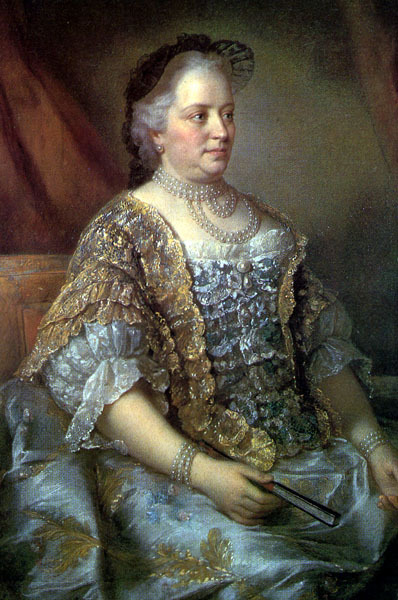
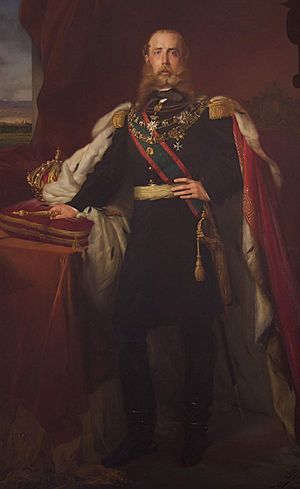
Maria Theresa, Archduchess of Austria, Queen of Hungary, Croatia and Bohemia, etc. reigned 1740-1780
The empress who reformed the empire while having a ton of children at the same time.
Maximilian , Emperor of Mexico, reign: 1864-1867
The last emperor of Mexico who supported liberal reform against the desires of Mexican conservatives.
Propaganda under the cut:
Maria Theresa:
From anon:
- chucked into ruling at age 23. while pregnant
- no prep!!!! Prussia invades Silesia!!! Ministers fucking around for their own provincial interests instead of for the Whole !!!!! and she has to somehow cope with all of this ....
- ALL WHILE being pregnant with Joseph (II) and we know that guy was just as ornery in utero as he was irl
- she's everything! He (Francis) is just ....Ken.
- YAS QUEEN rediversify that gene pool
- originally reluctant to participate in the 1st partition of poland (who wants galicia let's be real)
Maximilian
From: anon
- He loved plants
- He was a sassy man
- He had good taste
- He learned Nahuatl
- He’s cute (I mean look at him)
- He said “gay rights”
- He banned child labour in Mexico
- He gave many rights back to indigenous people
- Bro was wronged by France (haven’t we all?)
- He’s baby
- Got executed, come on, give him this guys 🥺
- He loved to design gardens and collect insects which makes me think he would've loved playing animal crossing
- An outspoken liberal in a period where the monarchy was still quite conservative.
- Vice-Admiral of the Navy who initiated scientific projects and exploration.
- Aesthetic girlie. Collected flowers, painted, wrote poetry, and kept a journal. He would have loved Tumblr.
- (Probably) gay or bisexual.
- Allegedly slapped Franz Joseph for refusing to allow Lombardy to have an elective body.
- Sisi's favorite brother-in-law (and not in a romantic way, fuck you Netflix)
- Refused to take the Mexican crown until a plebiscite had been held because he wanted to be invited by the Mexican people.
- Gave up all of his Austrian titles to go to Mexico because he believed he had made a promise to them.
- Also, his wife was amazing and capable and the amount of pure misogyny that certain historians and biographers have thrown at her is ridiculous. I know this isn't a Carlota poll, but she'd want Max to win.
- Netflix did him unbelievably dirty. Please give him this.
Did you know my man Max repatriated many pieces of Mexica artefacts?
He told Austria to cough up 3 main things that he thought were rightfully Mexican.
1. The Chimalli
2. A codex
3. A letter from Cortez to the chocolate man people seem to call Charles
The Austrians took their time but eventually gave back something
The Chimalli next to max so people know who to thank for it
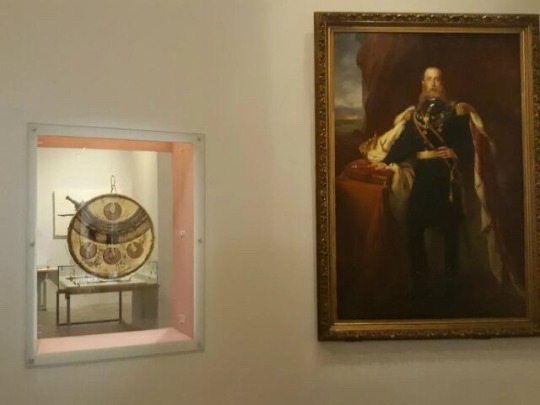
63 notes
·
View notes